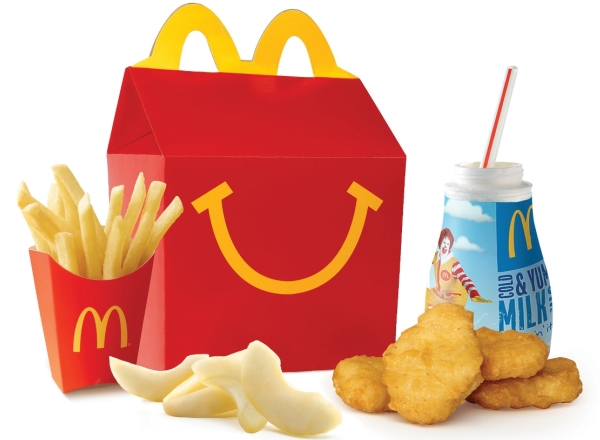Investing
4 More Recession Stocks to Consider for Volatile Times
Published:
Last Updated:
We went recently offered a list of four crash-proof stocks for a fading market. Here are another four that either performed moderately well through the 2008 crash or, if they haven’t been around long enough, probably will perform better than others based on their clientele and position within the production structure of the economy.
Speaking of the structure of production in an economy, it is helpful to understand why and how that structure is affected during a recession to see why companies at the consumption end of the structure perform better than those at the production end.
Friedrich Hayek, the 1978 Nobel Laureate of the Austrian School of Economics explained that a recession is an inevitable result of a boom. A boom is caused by the artificial lowering of interest rates, and lower interest rates induce investors at the producer end to embark on long projects with long-term loans taken from new money in the system created by those rates.
Once interest rates are normalized, it becomes evident that the demand for those products at the prices needed for a profit does not actually exist. The money that was borrowed to pay for their production did not come from consumer savings, which would have represented demand, but was simply created out of nothing. So the businesses at the capital goods end of production fall, along with their stocks.
ALSO READ: 4 Unloved Stocks Poised to Outperform
The consumption end, however, is less affected, because direct consumption is less dependent on low interest rates, and the less dependent it is, the better for the company. That said, stocks toward the cheap consumption end of the economy tend to do better than capital goods stocks dependent on low interest rates.
PriceSmart
PriceSmart Inc. (NASDAQ: PSMT) is the Costco of Latin America. Given that much of that continent is mired in hyperinflation (Venezuela), a debt default (Argentina) or a debt crisis (Brazil) and the company is still doing well, that points to its resiliency in the face of economic disorder. Of course, PriceSmart also operates in the United States, but the fact that trouble in South America has not crushed it is a very good sign.
PriceSmart did decline in 2008, but recovered three months before market bottom. It is not fully decline proof, but its business is strong and stable.
McDonald’s
The habit of spending $2 on a burger is not something that is all that much affected by a free-falling economy. 2008 was bumpy for McDonald’s Corp. (NYSE: MCD), but not much more than 2012 was. Bad news surrounding McDonald’s does not tend to last very long, as you may remember several months ago Wall Street complaining about earnings and lack of growth at the beginning of the year. The stock is back up now right near all-time highs again. Even if a downturn may affect the company going forward, it probably will not last too long.
After Black Monday 1987, it took a total of two trading days for McDonald’s shares to fully recover to where they were a day before the crash.
ALSO READ: 5 Defensive High-Yield Dividends Should Withstand the Next Stock Market Correction
Five Below
Five Below Inc. (NASDAQ: FIVE) is a dollar store for teenagers and other small people. Small people tend to not have any money anyway and teenagers have high unemployment regardless of the economy. Everything in Five Below’s stores is, strangely, $5 or below. A recession would have to be so bad that teenagers and preteens lose their meager allowance for it to really affect the company.
Plus, much of Five Below’s business has to do with school supplies, and the public school system will not collapse in the next recession. We have no gauge of how Five Below performed in previous recessions, but its business model and clientele suggests it will pull through just fine.
Teva Pharmaceutical
People need their meds, and the cheapest meds come from the generics leader, which is Teva Pharmaceutical Industries Ltd. (NYSE: TEVA). 2008 was a blip, and shares partially recovered by early November while everything else was in free fall. Full recovery came by February 2009. The 2008 blip was not even the most noticeable recent decline. The fall from 2010 to 2011 — from $63 to $35 — was much worse. Teva stock is not impervious, but recessions do not seem to be its biggest weakness. This one will be a better buy on the dip, having just recently surged.
Teva’s revenues have not been growing lately, but its expenses have been dropping heavily, pushing its stock to new highs. Unless economic turmoil will push expenses higher (not likely), a recession should not affect it all that much.
ALSO READ: 4 Crash-Proof Stocks With Growth Potential for a Fading Market
Start by taking a quick retirement quiz from SmartAsset that will match you with up to 3 financial advisors that serve your area and beyond in 5 minutes, or less.
Each advisor has been vetted by SmartAsset and is held to a fiduciary standard to act in your best interests.
Here’s how it works:
1. Answer SmartAsset advisor match quiz
2. Review your pre-screened matches at your leisure. Check out the advisors’ profiles.
3. Speak with advisors at no cost to you. Have an introductory call on the phone or introduction in person and choose whom to work with in the future
Get started right here.
Thank you for reading! Have some feedback for us?
Contact the 24/7 Wall St. editorial team.